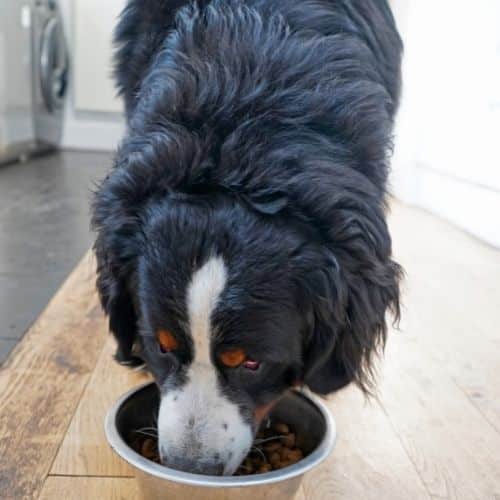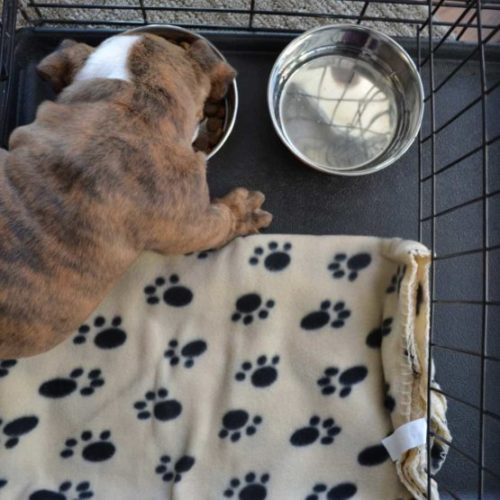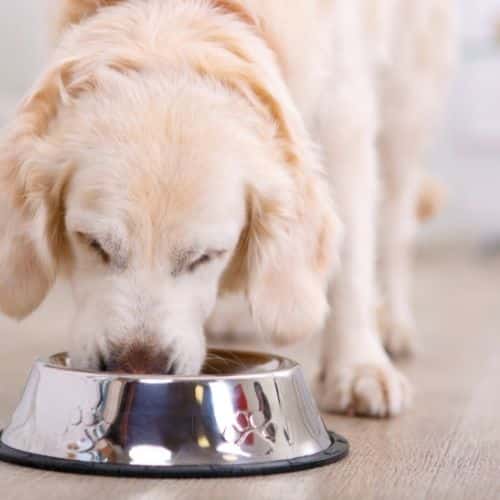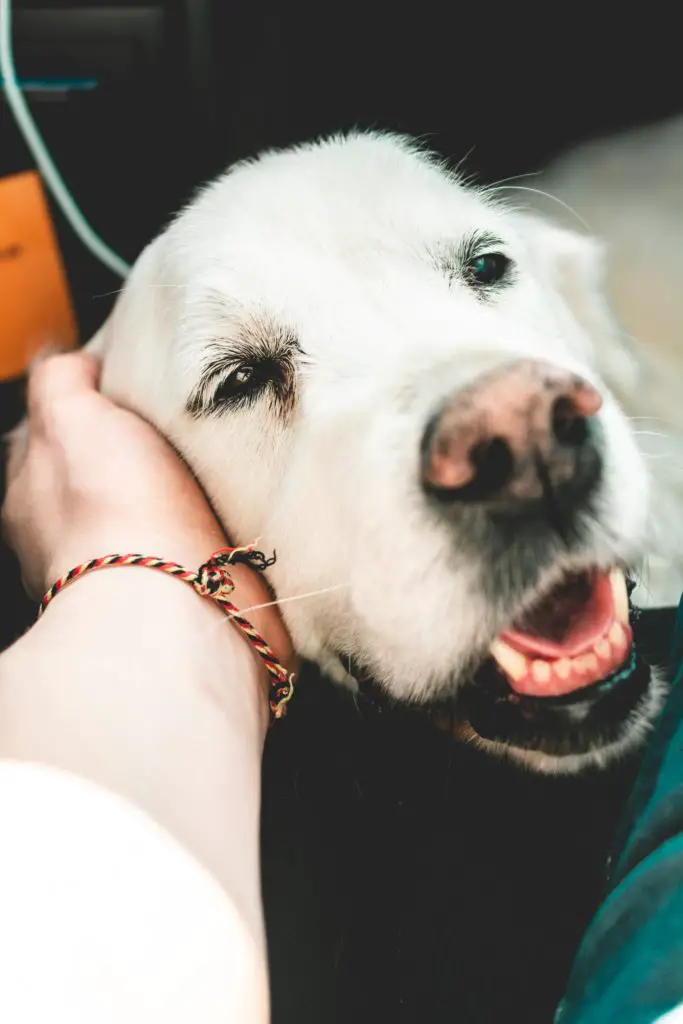We all know that dogs would eat literally anything. Yeah, that’s not always a good thing. Even if they are carnivores, they can also be tempted by vegetables, fruit, or any human food that smells good. Dog food itself has some ingredients that are not meat. While many people are shifting towards a vegetarian or vegan diet, some are tempted to alter their pets’ diets, too. This can lead to the question – can dogs eat Quorn?
In this article we will find out more about this ingredient and see if it is fit for dogs. You will find out if you can offer Quorn to your dog and in what quantities.
What is Quorn?

Quorn is a meat-free source of proteins that is used in vegetarian and vegan diets. People who opt for this food are looking to reduce their meat consumption. Reasons to replace meat with other sources of proteins are often related to health, animal rights, and environmental protection.
The main ingredient in Quorn is a mycoprotein derived from the fungus called Fusarium venenatum. [1]The mycoprotein is dried and mixed with egg albumen for binding. The vegan formulation of Quorn uses potato protein as a binder.
The creators of Quorn promote this food as being healthy due to:
- Its high content of fibers;
- The low content of saturated fats;
- Being a complete source of amin acids.
Why should one eat Quorn?

Quorn originated in the UK and is mostly sold in Europe, but is also gaining popularity in the United States. Half a century ago, there was already a concern that the expanding population would need unconventional sources of protein.
In the following decades, the awareness of meat production’s impact on our planet emerged. Issues related to meat consumption include:
- Meat production requires lots of resources and is hard on our environment;
- The access to land required to produce meat is diminishing at a growing rate;
- Excessive consumption of meat has been associated with various health problems, such as heart disease, cancer, and diabetes.
Quorn is a food brand which has decided to create a sustainable product to feed the planet’s growing population. According to Quorn, the company has sold almost 6 billion meals since 1985, in more than 20 countries. [2]
Quorn products are extremely varied and include: mini fillets, fried wings, sausage rolls, mince, Swedish balls, and many, many others.
You can agree that some of these foods can be appetizing for your four-legged friend, too. But are they suitable for dogs?
Can dogs eat Quorn? Short answer

Can dogs eat Quorn?
Yes, they can, but in small quantities.
Even if dogs are omnivores, their diet should mostly consist of meat.
A dog will not thrive on a meat substitute diet, even if those foods are palatable for dogs. Not everything that your dog would eat is necessarily good for it.
Does Quorn have any nutritional value for dogs?
What does Quorn contain, exactly? Is there any ingredient in it that is beneficial to your pooch? Let’s check the facts!
A typical Quorn product usually contains the following ingredients:
- Mycoprotein from Fusarium venenatum
- Firming agents such as calcium chloride and calcium acetate
- Stabilizers made from modified starch and cellulose
- Barley malt extract
- Onion and garlic powder
- Iron oxide
- Caramelized sugar
- Natural flavors
- Pea fiber
- Paprika
- Rehydrated egg white
- Vegetable oils such as rapeseed and palm oils
- Wheat protein
- Seasoning such as herbs (sage and parsley)
Some of these ingredients are OK for dogs, some are not.
Ingredients such as herbs, pea, wheat, and vegetable oils can provide the dog with certain beneficial nutrients.
Onion and garlic, on the other hand, are not safe for dogs. And neither are condiments. These can upset the dog’s stomach or cause health problems when ingested in large quantities.
Why can’t your dog have a vegetarian diet?

But the main issue with feeding Quorn to dogs is how much of it you offer. If your dog only eats meat substitutes and no meat, it will possibly get sick.
Technically, it is possible for your dog to have a vegetarian diet and do well. But if you make this choice, chances are you will get it wrong. You would have to be very careful about providing the dog with the nutrients it needs. Using just plant-based proteins to sustain a dog is very difficult to achieve.
Discussions about creating vegan diets for pets have emerged in the mid-2010s, when veganism has risen considerably. Between 2014 and 2017 this lifestyle has attracted 6 times more people in the United States than before.[3]
One of the reasons is the large carbon footprint of the meat industry. Even the carbon footprint for pet food is large enough to be taken into account. The pet population is growing and that impact of producing pet food can only go up. A scientific paper suggested that dogs and cats in the US eat the calorific equivalent of the diet of 63 million Americans. [4]
Under such circumstances, pet owners and companies are wondering if the use of meat in pet food can be reduced.
Probably not for cats, it seems.
Dogs are more on the omnivore side than cats, and they are fine if some nutrients come for plants.
Cats, on the other hand, are obligate carnivores and can only eat meat. Cats are unable to produce certain proteins, such as taurine, themselves. When a cat is missing taurine, it can develop a condition called dilated cardiomyopathy which may be lethal.
Returning to dogs, these animals are more adaptable. The wolfs that came close to campfires and were domesticated did not always receive meat from humans. Even wolfs living in the wild are known to eat eggs, grass, and berries. Canines can tolerate less meat and more plant matter in their diets.
This means that some ingredients sourced from plants can be introduced to dog food, especially fungi-based foods. Fungi nutrients are even better tolerated by dogs than plant matter. Moreover, they taste better than most plants due to their typical “umami” taste that both humans and dogs enjoy.
Feeding dogs a 100% vegetarian diet is hard to achieve and impractical. However, replacing some of the meat with plants of fungus is doable.
As a side note, insects could be a source of food for cats and dogs in the future. They are a complete protein and growing them has a lower environmental impact.
What are the risks of feeding Quorn to your dog?
Supposed you fed your dog with Quorn only, what would happen? Here are the risks associated with feeding dogs meat substitutes only:
Placing burden on the dog’s pancreas
Some experts claim that a diet containing too much plant is not good for the dog’s pancreas. The pancreas is forced to produce large amounts of amylase to break down starch, cellulose, and carbohydrates. In other words, this species is no effective at digesting and assimilating plant material as a source of protein.[5]
Not getting enough protein
Removing meat from a dog’s diet is possible, but makes it difficult to provide sufficient protein to your pooch. Aside from protein, fatty acids in meat are hard to replicate, and supplements are never as effective as wholesome food.
Without meat, your dog will probably get a flaky, itchy skin and its coat will lose its shiny heathy aspect.
Toxic effects from ingesting onions and garlic
Quorn products often contain onion and garlic for flavor. These two ingredients are not safe for dogs.
They are actually some of the most dangerous human foods for dogs.
Onion and garlic contain a compound called N-propyl disulfide. It is a Sulphur compound which attaches to the oxygen molecules in the dog’s red blood cells, causing oxidative damage. As a result, red blood cells become unable to carry oxygen properly.
Next, the dog’s immune system thinks that the organism’s red blood cells are dangerous. As a result, it attacks them in a process called hemolysis.
When left untreated, this condition causes hemolytic anemia, which can be lethal. What happens is that red blood cells are being destroyed at a faster rate than they can be made. Without red blood cells, your dog cannot stay alive.
It’s unlikely that a serving of Quorn could contain so much onion and garlic as to kill your dog. However, avoid these two plants altogether to stay on the safe side.
How much Quorn can a dog eat?

A dog should be fed Quorn just in small quantities. Also, make sure you avoid those Quorn products that contain ingredients which are harmful to dogs.
By no means should you feed your dog Quorn only.
Even if it is possible to put your dog on a vegetarian diet, Quorn is not the solution. Only veterinarians and pet nutritionists could come up with a meat-free diet that is safe for dogs.
If your dog craves some of that Quorn nuggets you are eating, you can give it some. But only if you make sure there are no additional harmful ingredients in it.
Bottomline
So, can dogs eat Quorn after all?
Yes, occasionally and in small quantities. Never entirely replace meat with Quorn if you want your dog to be healthy and develop properly.